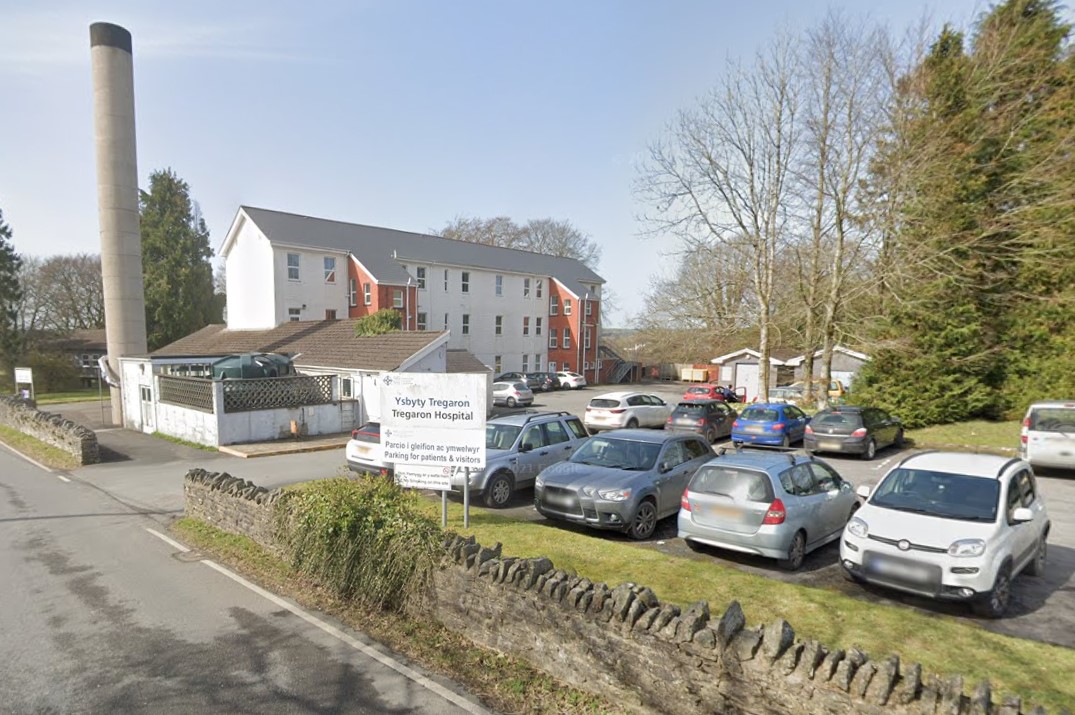Health
Two-fifths of adults’ sex lives impacted by health problems in Wales

TWO in five (40%) people aged 18 and over in Wales say their sex life has at some point been affected by illness, injury, a health condition or disability. And around one in three (32%) say health problems have affected their relationship. That’s according to a new survey by the Royal College of Occupational Therapists (RCOT). In the lead up to Valentine’s Day, the findings support expert advice on improving your sex life, intimacy and relationship from occupational therapists.
According to the poll, around one in seven (14%) adults in Wales say their or their partner’s lack of understanding of the other person’s health condition has caused problems in their relationship. And more than one in five (22%) said the impact of their or their partner’s health condition has caused relationship problems.
With around half (48%) of adults in the UK affected by long-standing health problem1, there is a clear need for more support for people with health challenges to be able to maintain healthy connections and stable relationships. For many, improving communication could help.
The poll found that almost one in three (28%) people in Wales would break up with someone if they thought the sex was bad. The top causes of problems in a relationship in Wales are: stress (23%), poor communication and financial pressures (both 22%), and not sharing chores (19%).
Lauren Walker, Professional Advisor at the Royal College of Occupational Therapists, says:
‘There’s more to a relationship than sex, and – as our survey shows – communication is absolutely key. While, for many of us, sex is an important part of a relationship, there are many other components to a stable and healthy relationship.
‘It’s surprising to see just how many adults’ relationships and sex lives have been affected by long-term illness, injury, health condition or disability in Wales. And it’s a concern that so many of these people feel their relationship is affected by a lack of understanding or simply the impact of a health problem. This is where occupational therapists come in. We work with people to address both physical and psychological challenges around sex and intimacy. We help them to overcome barriers that they’re facing in their romantic and sexual relationships.
‘Ahead of Valentine’s Day, the best place to start is by having a conversation with your partner about your relationship and your sex life. It can be difficult and uncomfortable, so make sure you’re in a relaxed environment. If you need to, ask a friend if you can role play the conversation beforehand, or practice in a mirror, so you have an idea of what you want to say.’
Occupational therapists work with people of all ages who have a wide range of conditions, helping them overcome challenges completing everyday occupations, also known tasks or activities. This can include intimacy and sex, within the context of long-term health conditions, illness, injury or disability. They work with the person as an individual, look at their environment, and may suggest equipment, lifestyle changes, stress management or communication techniques and resources to help someone improve their relationship, intimacy and sex life.
RCOT has released expert advice from occupational therapists for improving your sex life, intimacy and relationship as part of its ongoing Lift Up Your Everyday campaign. It provides examples of the type of advice an occupational therapist would give as part of a personal, realistic and practical plan for an individual. The advice is available at rcot.co.uk/relationships
To find out more about what an occupational therapist does, or to find a registered occupational therapist, visit rcot.co.uk
Health
10-mile trek raises £1,000 for stroke unit

A TEAM of 18 from CARA Wales took on a 10-mile trek and raised £1,000 for the Stroke Ward at Withybush Hospital.
The team from CARA Wales, an agricultural and rural consultancy and advice organisation, walked across the Preseli Mountains from Foel Drygan to Foel Eryr on 17th June 2023.
Mererid Sandbrook, who works for CARA Wales, said: “The walk started in Crymych and continued along the Golden Road up to Foel Eryr, the highest point of Preseli Mountain. It was a really enjoyable day.
“We were all really pleased to have raised such a great amount of money. We would like to thank everyone who donated money towards our challenge.”
They also raised £1,000 for Stroke Association.
Nicola Llewelyn, Head of Hywel Dda Health Charities, the official charity of Hywel Dda University Health Board, said: “We’d like to say a big thank you to CARA Wales for taking on the 10-mile trek in aid of the Stroke Ward.
“The support of our local communities enables us to provide services over and above what the NHS can provide in the three counties of Hywel Dda and we are extremely grateful for every donation we receive.”
Your donations are making a positive difference to the health, wellbeing and experience of NHS patients, service users and staff. For more details about the charity and how you can help support local NHS patients and staff, go to www.hywelddahealthcharities.org.uk
Health
Hywel Dda to engage on Tregaron Community Hospital beds

HYWEL DDA University Health Board is inviting members of the public to share their views about the potential of decommissioning the nine beds currently at Tregaron Community Hospital.
The proposal for a new model of care, which is part of the broader Cylch Caron project, will see the move of care from the hospital to people’s own homes enabled through a different model of support. This can only be achieved by staff working in different ways, focused on keeping people well at home, and with more available to help people in the community.
Peter Skitt, County Director Ceredigion at Hywel Dda University Health Board explains: “Members of our local community will be familiar with our vision, which includes the development of the Cylch Caron model of care that includes an integrated resource centre.”
Dr Sion James, Deputy Medical Director Primary Care and local GP for Tregaron, adds: “Tregaron Hospital has been a part of our local community for a number of years, and we need to provide our community with a range of services that meets their current and future needs.
“The Centre is an exciting and unique project that aims to offer many opportunities and benefits for people in the area. This will bring together a range of services in a central hub for the Tregaron and surrounding rural areas. The project will create an innovative rural model of community-based care to meet care, health and housing need in the area, which is fit for today and sustainable for tomorrow.”
The Cylch Caron scheme is being developed in partnership between Ceredigion County Council, Hywel Dda University Health Board and the Welsh Government. It will consist of a GP surgery, community pharmacy, outpatient clinics and community nursing and social care facilities, as well as extra care flats and integrated health and social care units.
Ceredigion County Council recently announced that they are inviting companies to tender for the design and build of the new fully-integrated health, social care and housing centre.
Peter adds: “While we develop our Cylch Caron scheme, we also need to consider our current model of care for patients at Tregaron Hospital. Despite efforts to recruit to positions, our current level of staffing is insufficient, and our staffing rotas are fragile. Our staff have voiced how challenging it is to support our patients through our current model of care at Tregaron Hospital. Our proposal is to move our staff from being hospital based and looking after the nine beds, to being community based. This will enable us to support more patients in their homes.
The Cylch Caron model of care is focused on providing more community nursing and enhanced care in people’s own homes. This would be achieved through outreach nursing and increased provision of same day urgent care. Outpatient appointments will continue to be provided from Tregaron Hospital and the building will serve as a hub for our staff until the new Cylch Caron Integrated Resource Centre is built.
Peter continues: “We know that being close to home, or in their home, is important for our patients. We want to increase the opportunity for people in Ceredigion to be able to stay well for longer, with the support of enhanced staffing in their own homes.
“At the moment, the patients in our care at Tregaron hospital live more than ten miles away from the hospital, and most are medically fit. And this has been common for a long time. Our proposal to move our staff to focus on advanced care in people’s homes provides a different way of supporting our patients. It will enable us to deliver our community care model quicker and support more people in our communities.
“Patients have consistently shared that they would prefer to be at home, or closer to home, and this tends to enable their recovery. We will work with our patients and their families, and our broader community, to understand their views during the planned period of engagement.”
The proposal to decommission the nine beds and the engagement period will be discussed at the Board meeting held on 25 July. The four-week period of engagement will launch on 1 August and run until 29 August 2024. Individuals will be able to attend online and in-person events and be able to share their views through the Health Board’s Have Your Say portal. Feedback from the engagement will be presented to the September meeting of the Health Board.
Further information on the events and how individuals can share their views will be shared at the end of July.
Health
Equipment and games for Glangwili children’s ward thanks to donations

THANKS to donations, Hywel Dda Health Charities, the official charity of Hywel Dda University Health Board, has been able to provide equipment and games worth over £300 to Cilgerran Ward at Glangwili Hospital.
The NHS charity funded TV brackets, universal remotes, Nintendo Switch cases and Nintendo games including FIFA, Chocobo and Minecraft Dungeons.
Karen Thomas, Head of Therapeutic Play, said: “We are so grateful that charitable funds have allowed us to purchase more items for Cilgerran Ward.
“The new items will help the therapeutic play team work more effectively and focus their time on the children and young people in our care.
“Being able to play while in hospital means the children and young people can continue an aspect of their normal life. Arts and crafts help as they go through treatments and procedures in hospital, minimising the effects of isolation, stress and anxiety.
“The items will help make the ward and all the areas the children attend more friendly and promote wellbeing for all.”
Nicola Llewelyn, Head of Hywel Dda Health Charities, the official charity of Hywel Dda University Health Board, said: “The support of our local communities enables us to provide services over and above what the NHS can provide in the three counties of Hywel Dda and we are extremely grateful for every donation we receive.”
For more details about the charity and how you can help support local NHS patients and staff, go to www.hywelddahealthcharities.org.uk
-

 Education5 days ago
Education5 days agoMilford Tesco worker achieves Oxford dream and lands top legal job
-

 Crime4 days ago
Crime4 days agoHaverfordwest man admits having nearly 1000 child and animal images
-

 Crime4 days ago
Crime4 days agoYouth set to appear in court over serious sexual offences
-

 Crime4 days ago
Crime4 days agoPolice investigating after man injured during altercation in cemetery
-

 Education4 days ago
Education4 days agoPupils delight in ice cream treat from Pembrokeshire’s number one van
-

 Crime4 days ago
Crime4 days agoTown centre ‘stinking of skunk’ as police strip cannabis farm
-

 Crime3 days ago
Crime3 days agoFag-butt police court summonses spark debate in Pembrokeshire
-

 News6 days ago
News6 days agoProposal to give firefighters a council tax discount to go to Cabinet




























